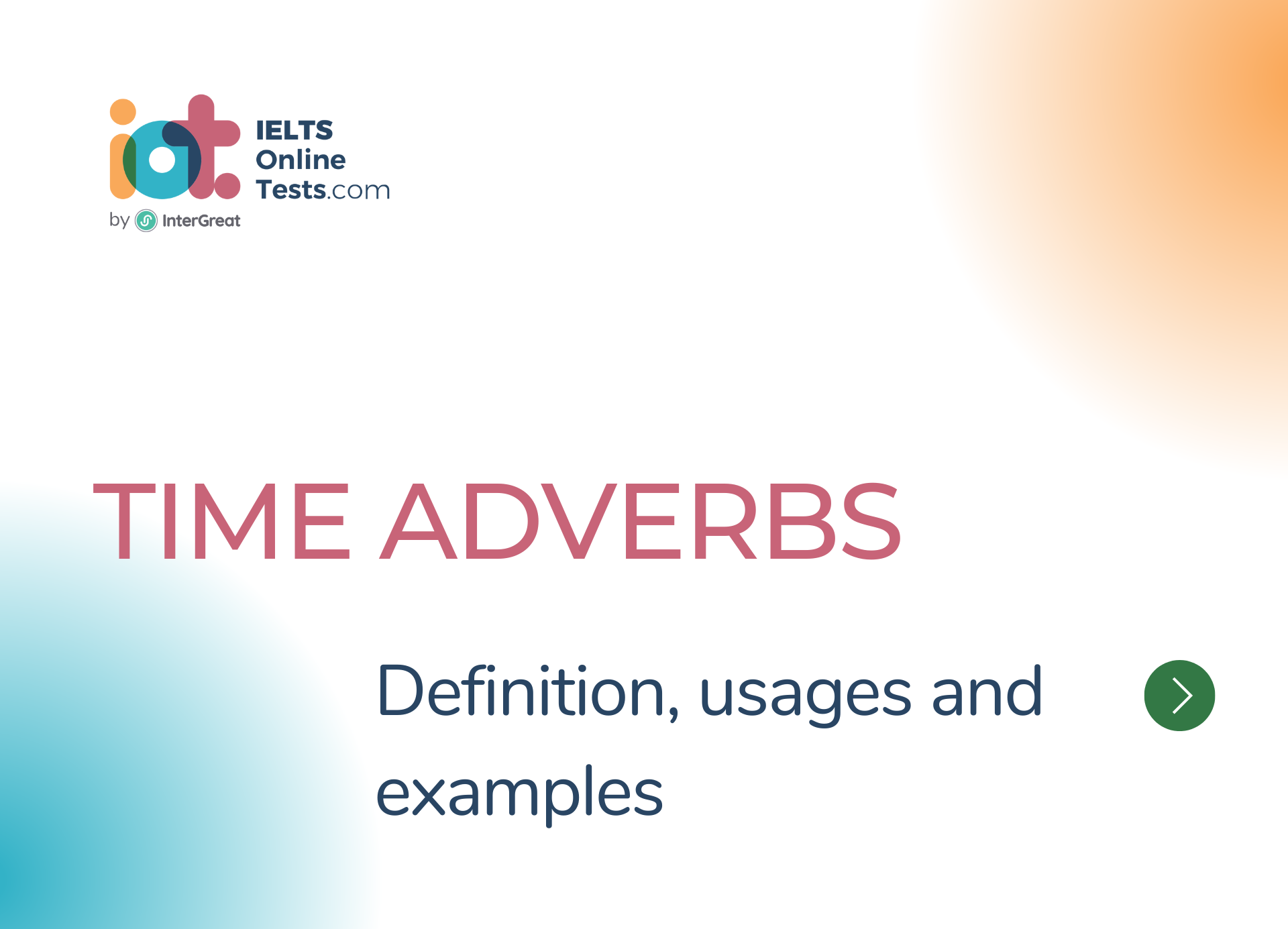
Time adverbs
Time adverbs specifically indicate when an action occurs or provide information about the timing or frequency of an event. They help establish the temporal context of an action or event.
Here are some key points about time adverbs:
Definition: Time adverbs modify verbs, indicating when an action happens or providing information about the timing or frequency of an event.
When an Action Occurs: Time adverbs answer the question "when" and provide information about the specific time or period when an action takes place.
- Example:
- "He arrived yesterday,"
- "She will leave tomorrow."
- Example:
Timing of an Event: Time adverbs can indicate the timing or sequence of events.
- Example:
- "First, we went to the store. Then, we visited the museum."
- Example:
Frequency: Time adverbs can express how often an action occurs.
- Example:
- "I often go jogging,"
- "They rarely eat out."
- Example:
Time Expressions: Time adverbs can be specific words or phrases that denote a particular point in time, duration, or frequency, such as "today," "tomorrow," "yesterday," "always," "never," "sometimes," "frequently," "hourly," "monthly," etc.
Placement: Time adverbs can be placed at the beginning, middle, or end of a sentence, depending on the emphasis or intended meaning.
- Example:
- "Yesterday, I went to the park,"
- "I will see you tomorrow."
- Example:
Verb Tense: Time adverbs often work in conjunction with specific verb tenses to convey the temporal aspect of an action.
- Example:
- "He has already finished his homework,"
- "She will soon graduate."
- Example:
Time adverbs provide crucial information about the temporal aspects of actions, events, or situations. By using time adverbs effectively, we can convey a clear timeline, establish the sequence of events, and provide a sense of when something occurred or will occur. They contribute to the overall coherence and accuracy of our communication by grounding our statements in specific time references.




